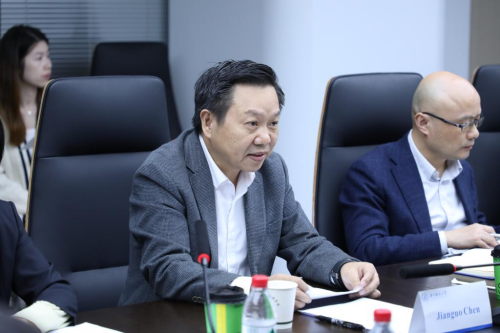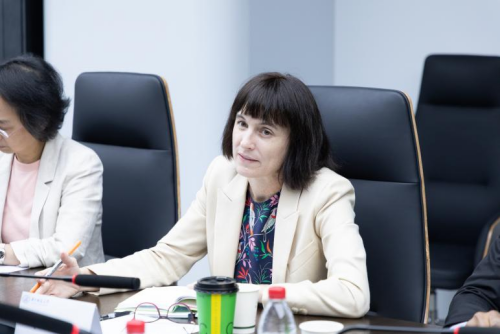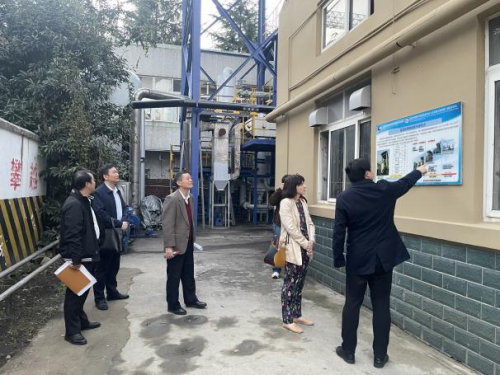On 6th November, Stephanie Duran, Director of the Department of Energy (DOE) China Office at the U.S. Embassy, and Forest Yang, Counselor for the Environment, Science and Technology, and Health Section at the U.S. Embassy in China, took a visit to the School of Energy and Power Engineering, Huazhong University of Science and Technology (HUST). Both sides discussed and exchanged views on deepening practical cooperation in the field of energy.
Vice President Chen Jianguo gave Stephanie Duran and Forest Yang a warm welcome. He pointed out that HUST is distinguished for its discipline strength in engineering and that there have been fruitful outcomes from the cooperation between China and the US in the fields of scientific research, talent training and bilateral exchange. The School of Energy and Power Engineering played an important role in the Clean Energy Research Center (CERC), carrying out research on clean coal technology and other relevant research. Together with West Virginia University, they formed a team of experts and established the CERC-ACTC to further research in the carbon capture, utilization and storage (CCUS) field.

Stephanie Duran praised HUST’s strong academic strength and fruitful research achievements. The CERC serves as a model for China-US cooperation. Experts from both China and the US have cooperated with full strength to advance CCUS technology. Helping reduce technical costs and benefiting people will be the common goals in the future.

Professor Zheng Chuguang, founding Director of the Advanced Coal Technology Consortium of the CERC, denoted that China and the US have a benign foundation of cooperation and achieved great outcomes. Hopefully, both teams can enhance cooperation in future development. Professor Zhao Yongchun and Professor Zhao Haibo, the Deputy Directors of HUST’s State Key Laboratory of Coal Combustion, emphasized the importance of international cooperation to overcome technical challenges against the background of global warming.
The two parties held deep discussions over how to best facilitate China-US higher education cooperation and on how to reduce technical costs to better achieve industrialization.

After the discussions, the delegation visited the State Key Laboratory of Coal Combustion and the 3MW Carbon Capture Test Base. They affirmed the school’s technological innovation and industrial demonstration.

Written by: Re Mila
Edited by: Yang Kunjie, Chang Wen, Peng Yumeng
